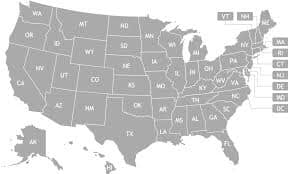
With the renewed threat of a "residency requirement" for use of the Kentucky open records law, we again ask: Should Kentucky abandon 44 years of open records law guaranteeing "any person's" right of access to public records in favor of a law limiting use to Kentucky residents?
In November, 2019, the Kentucky League of Cities presented its 2020 legislative agenda to the Interim Joint Committee on Local Government. The League proposed an amendment to the open records law to "reduce the cost to Kentucky taxpayers of responding to numerous requests from out of state requestors."
https://www.ket.org/legislature/?archive=&nola=WLEGP+019060
The goal? To limit or eliminate the rights of nonresident requestors to use Kentucky's open records law.
The League's proposal echoed a failed bill introduced in the 2019 legislative session. That bill would have amended the open records statute guaranteeing "All public records shall be open for inspection by any person" to "All public records shall be open for inspection by *any resident of the Commonwealth*."
https://apps.legislature.ky.gov/record/19rs/HB387.html
Is it possible that the League, and others, are exaggerating the unwelcomed "costs" of the law to advance the longer term goal of limiting use of Kentucky's open records law to residents only?
Certainly, the same arguments are being advanced in New Jersey by that state's League of Municipalities in support of a "resident users only" open records requirement in its current legislative session.
https://www.facebook.com/419650175248377/posts/570795573467169/?d=n
Proponents of a "residents only" law are apparently intent on walling Kentucky's public records off from nonresident requesters. They characterize the proposed legislation as an agency resource/cost saving measure. Sadly, their position fails to recognize that "the importance of state government information does not stop at state lines."
It also fails to recognize that the handful of "resident only" public records laws that exist across the country are so porous, so easily evaded, and so inconsistently enforced as to render them useless. No known data confirming their effectiveness as an agency resource/cost saving measure exists. For these and other reasons, Florida and Georgia have eliminated earlier "resident only" requirements.
Verification of residency poses enormous challenges for agency officials, stalling the process for both residents and nonresidents. Nonresidents intent on accessing public records governed by resident only open records laws regularly do an end run around the statutes by locating resident "middlemen" to make the requests on their behalf. Enforcement in most of the states is uneven and inconsistent.
And there is a very real human toll. A nonresident seeking information on a suitable nursing home for an aging parent may be denied access to nursing home inspection reports. A nonresident victim of a crime, or involved in a car accident, may be unable to access law enforcement records. A nonresident living just over the state line, who has a direct interest in local records, may be turned away.
Residency requirements slam the door on nonresident genealogists, researchers from all disciplines, and data gatherers, including those that provide employment background checks, consumer credit checks, and automobile history/safety information.
They also wall off non-resident journalists, like Russell Carollo, the non-resident investigative reporter, now deceased, who, in January 2016, launched the open records inquiry into Purdue Pharma by submitting a request to the Kentucky Attorney General for "records related in any way to Purdue Pharma L.P., including all records obtained through discovery [and] all records related in any way to the authorization for destruction of any documents falling under the scope of this request."
https://ag.ky.gov/Priorities/Government-Transparency/orom/2016/16ORD082…
These were the records that formed the basis for the previous attorney general's settlement of Kentucky's legal claim against Purdue Pharma.
Had it existed in the past, a resident's only user law would have also obstructed CNN Senior Medical Correspondent Elizabeth Cohen's 2014 requests for records relating to higher than average mortality rates in the University of Kentucky's pediatric heart surgery program. It would have blocked Kansas's City Star reporter Steve Rock's 1997 request to the University of Kentucky for NCAA required records documenting outside athletically related income for members of the athletic department.
https://ag.ky.gov/Priorities/Government-Transparency/orom/2014/14ORD158…
https://ag.ky.gov/Priorities/Government-Transparency/orom/1997/97ORD085…
And these are just a few examples of national reporting that would have been impeded by a "residency requirement."
With respect to the League's general claims about the cost to taxpayers, Kentucky's open records law enables agencies to require prepayment for copies of public records, reducing the likelihood that they will be "stiffed." When dealing with a commercial user, as defined in the open records law, Kentucky's agencies are not limited to recovery of the actual costs of making copies, excluding staff costs. Agencies may charge a commercial user the actual costs *and* the cost of "staff required to produce a copy of the public record or records" as well as the "cost to the public agency of the creation, purchase, or other acquisition of the public records." This offsets the "cost to taxpayers."
https://apps.legislature.ky.gov/law/statutes/statute.aspx?id=23061
The question for Kentucky lawmakers, and for all Kentuckians, is whether we will join the ranks of that small minority of states which have enacted retrogressive laws that impede both nonresident and resident access to public records, that are easily evaded, and that are inconsistently enforced, on the thin claim that the burden on taxpayers will be lifted.
Or will we preserve our current law which mirrors the vast majority of state public records laws and recognizes that the value of our records does not stop at the Kentucky state line.


